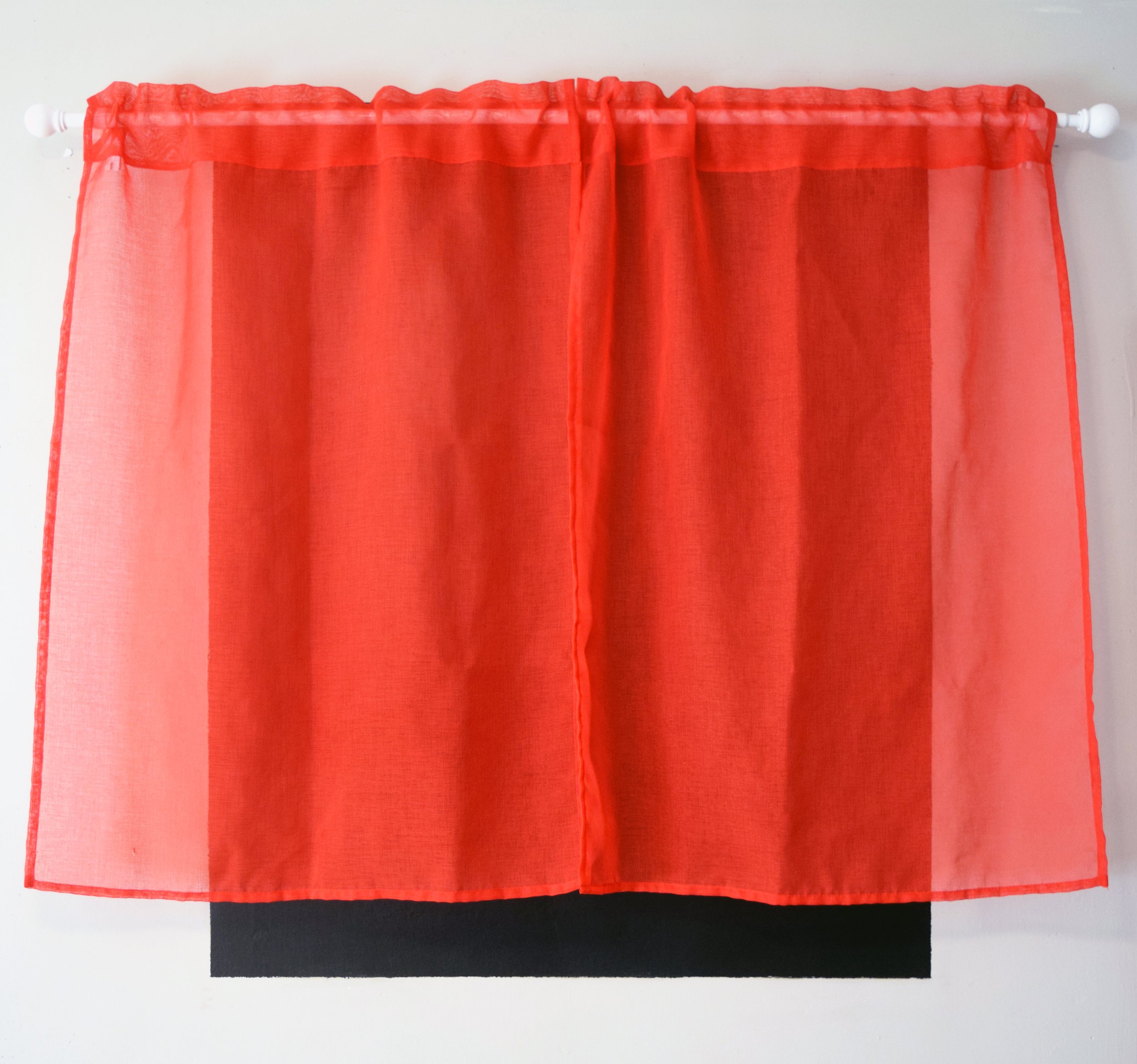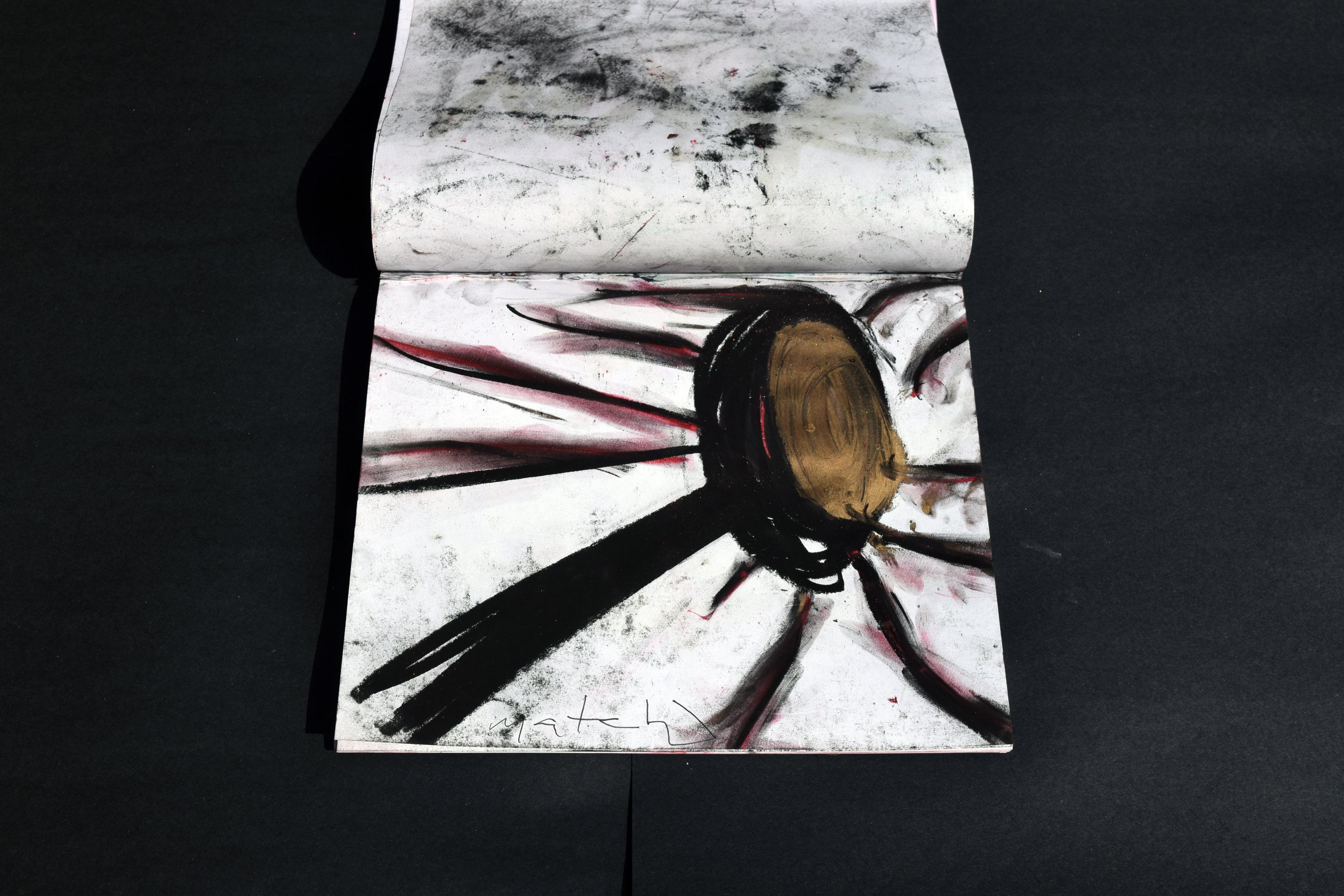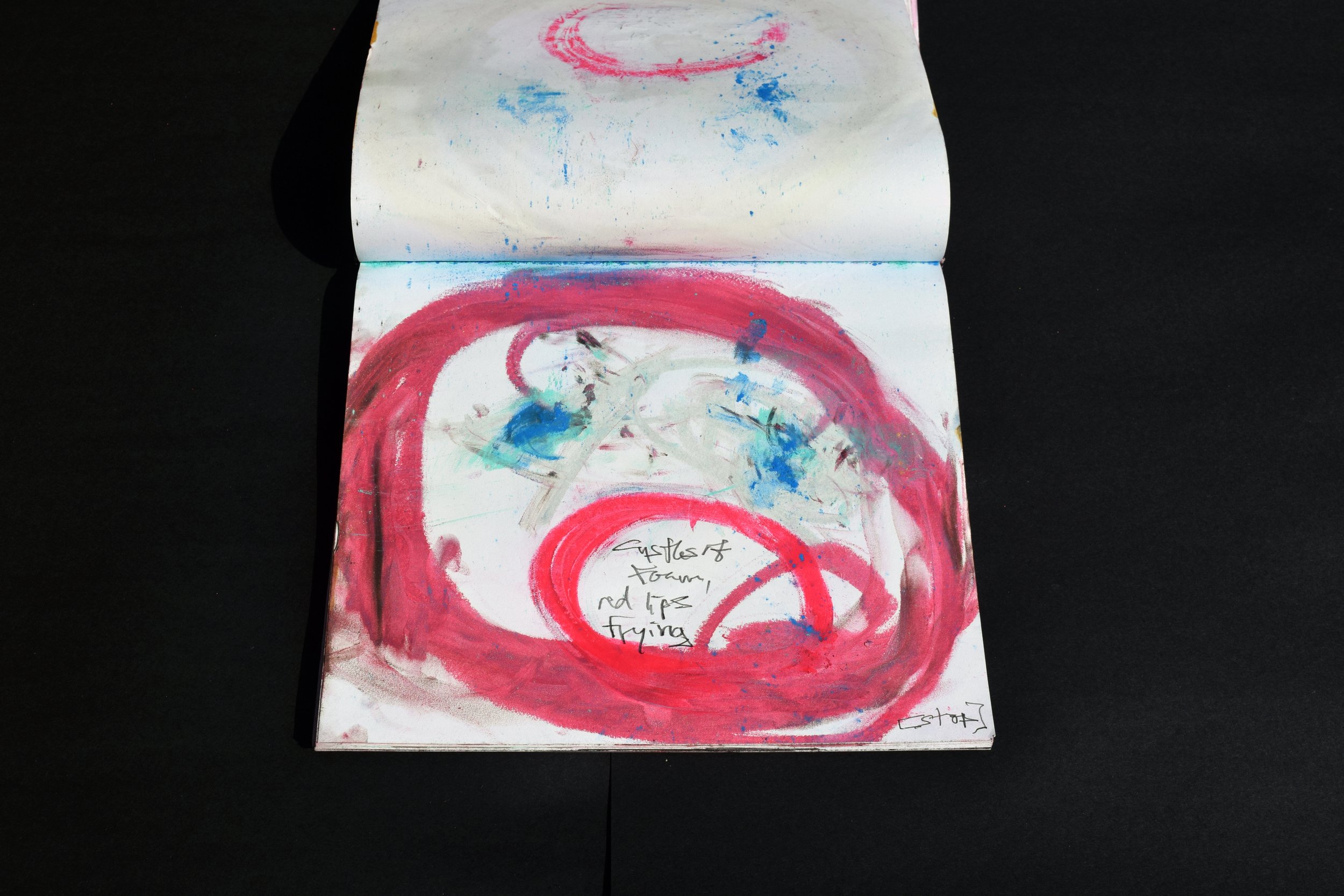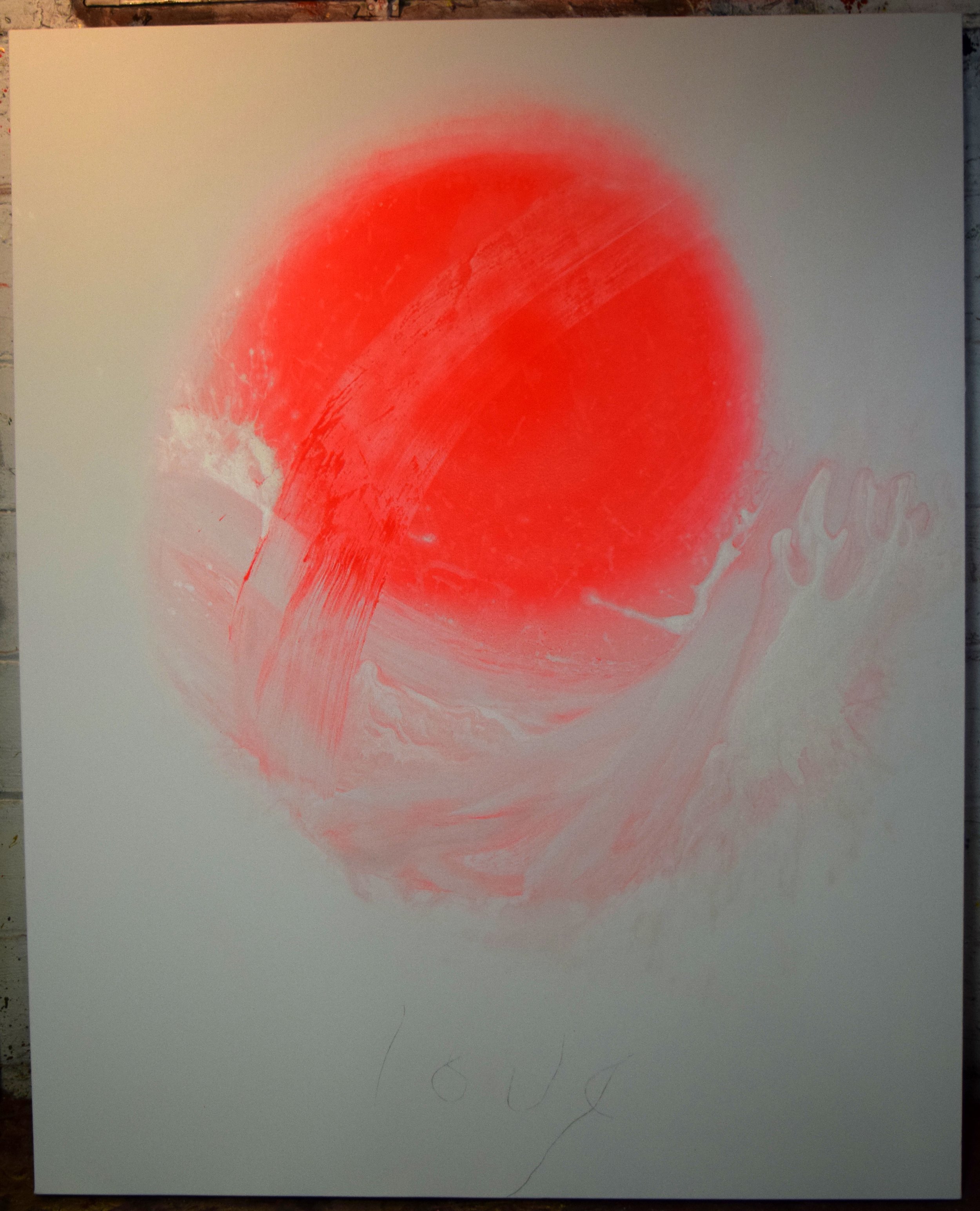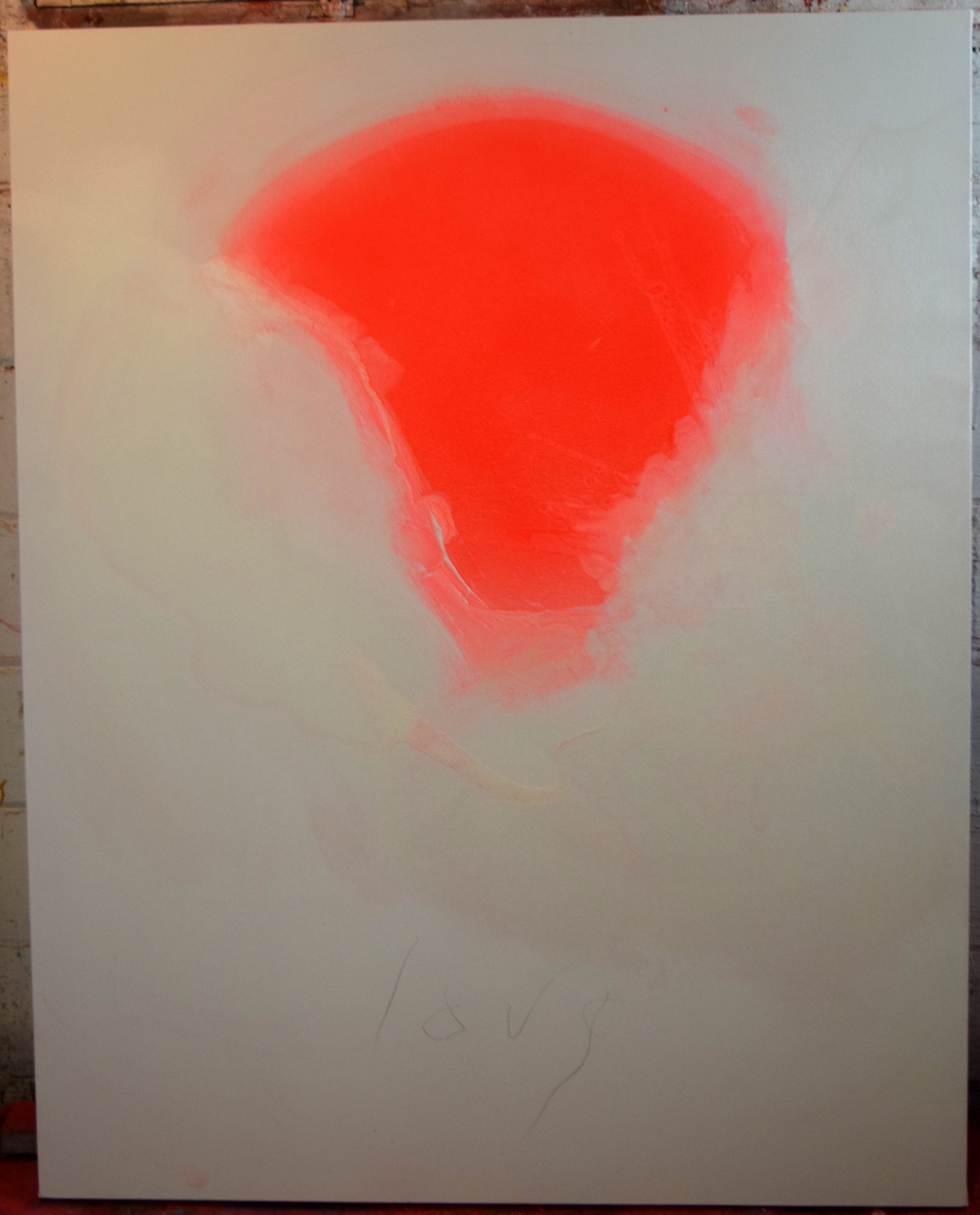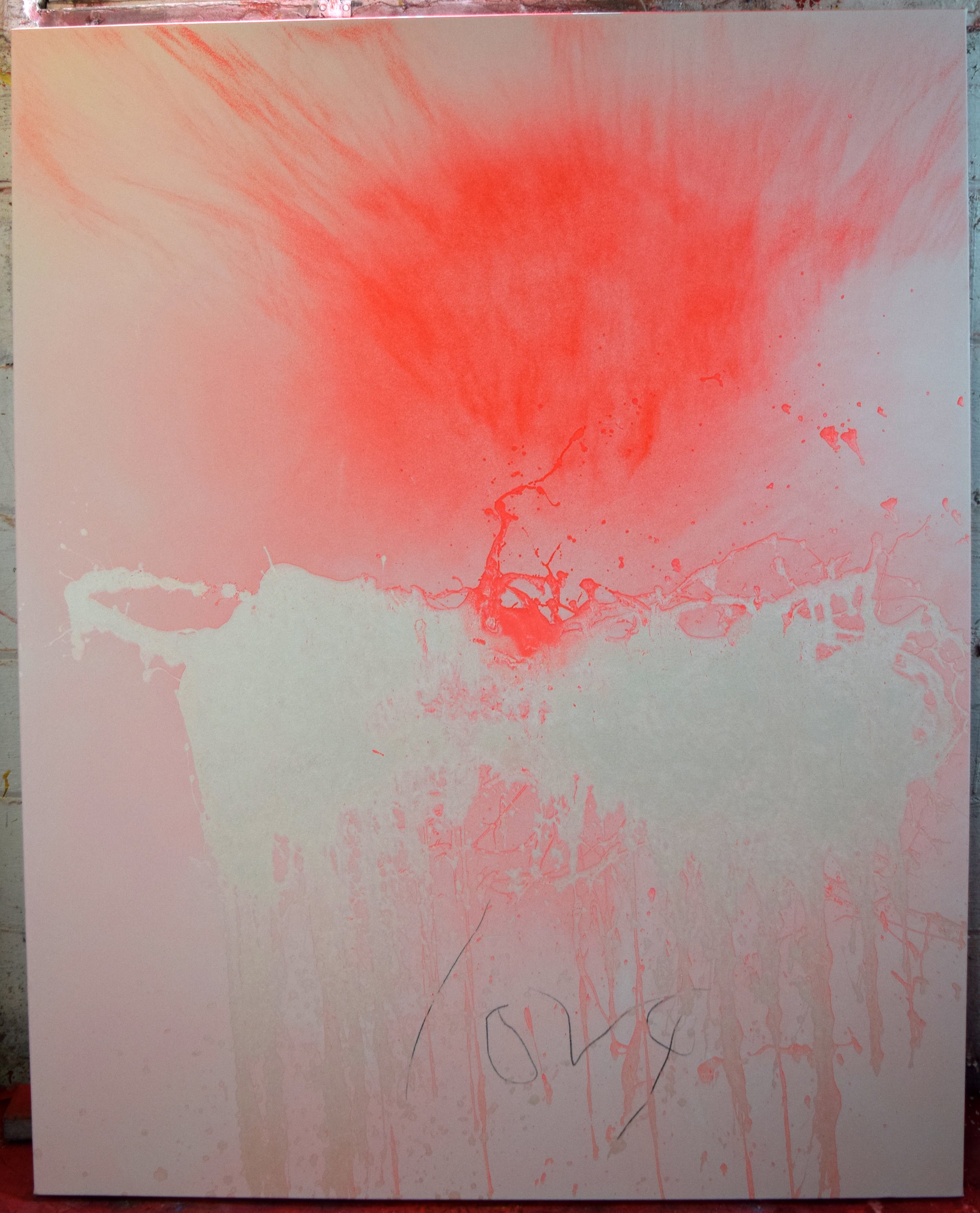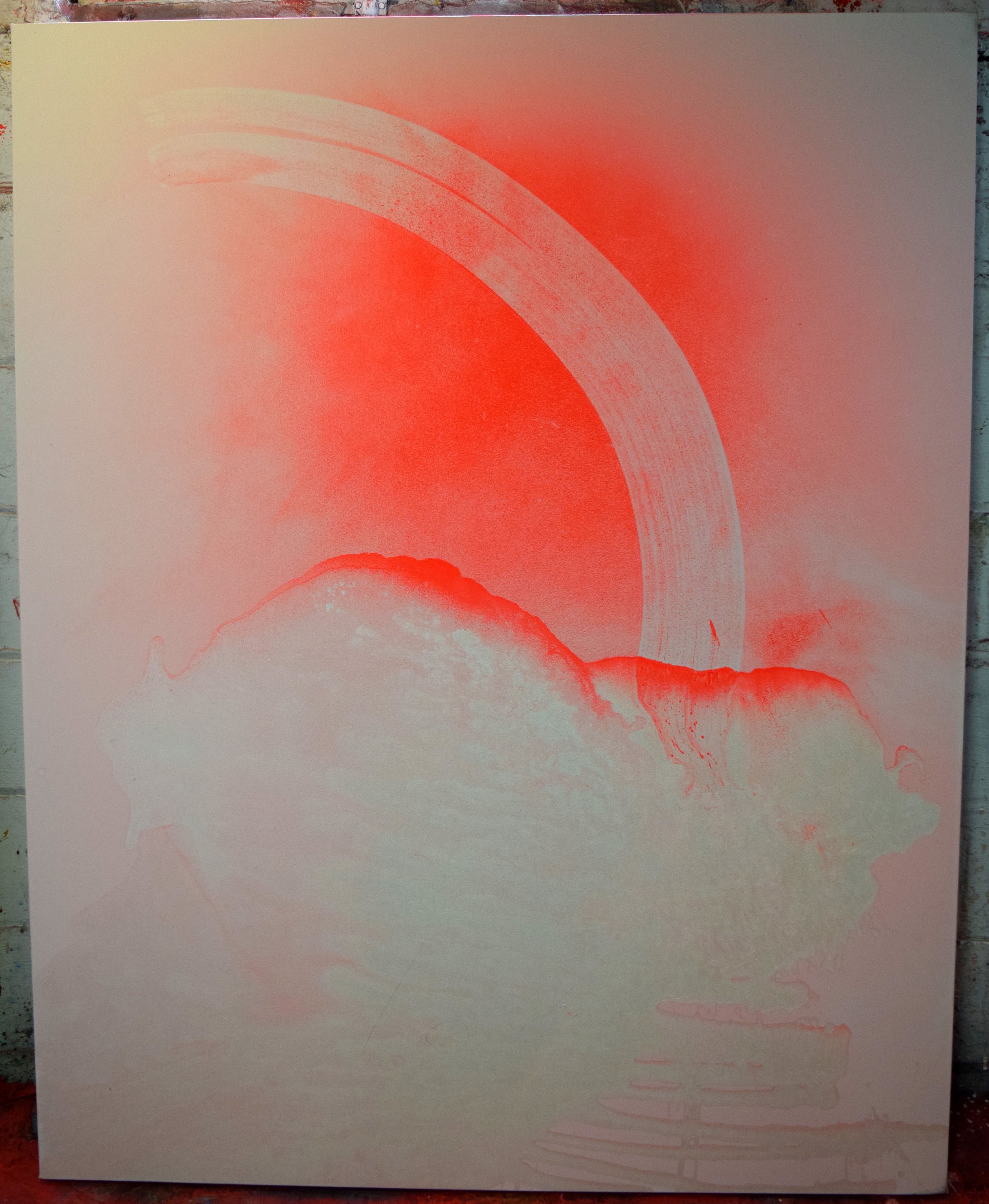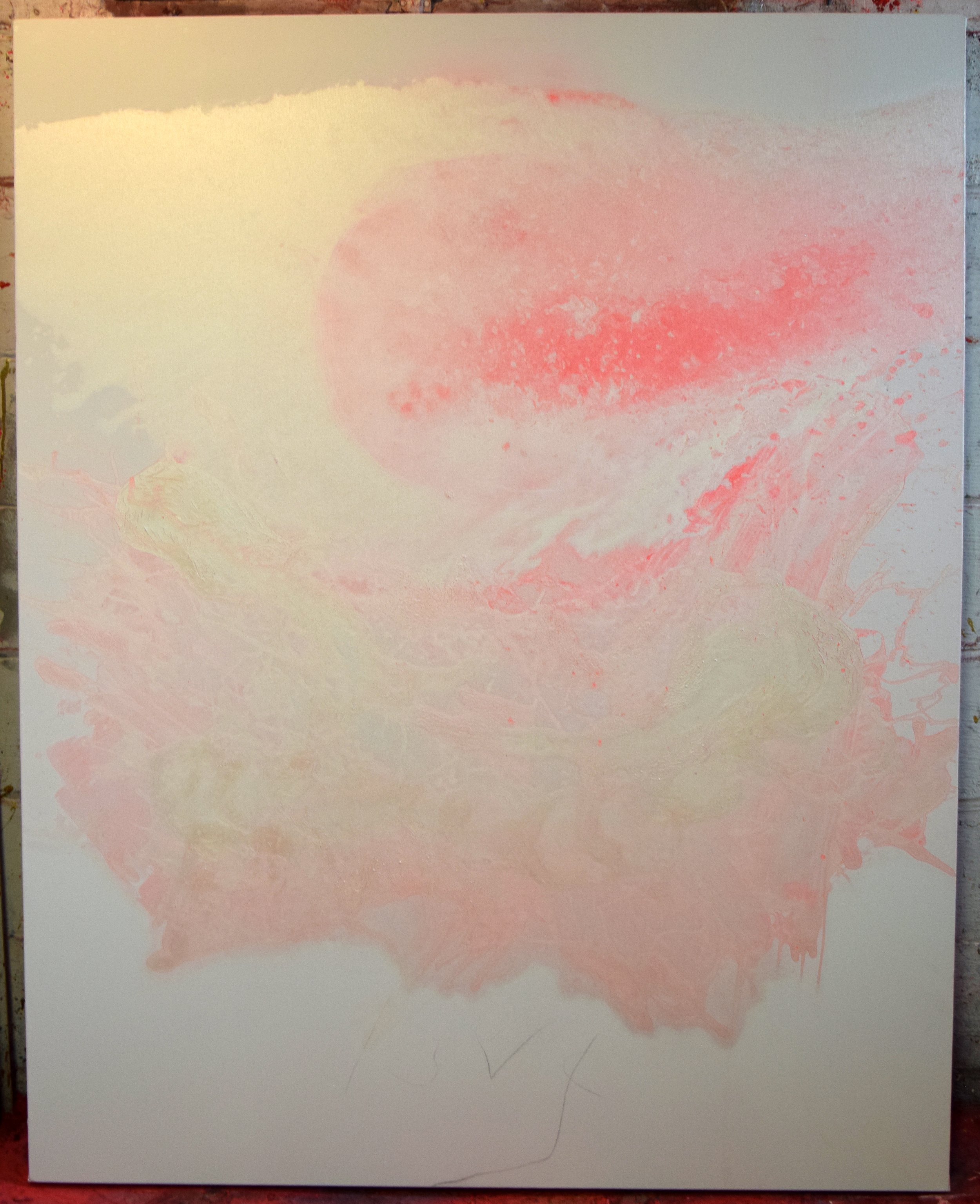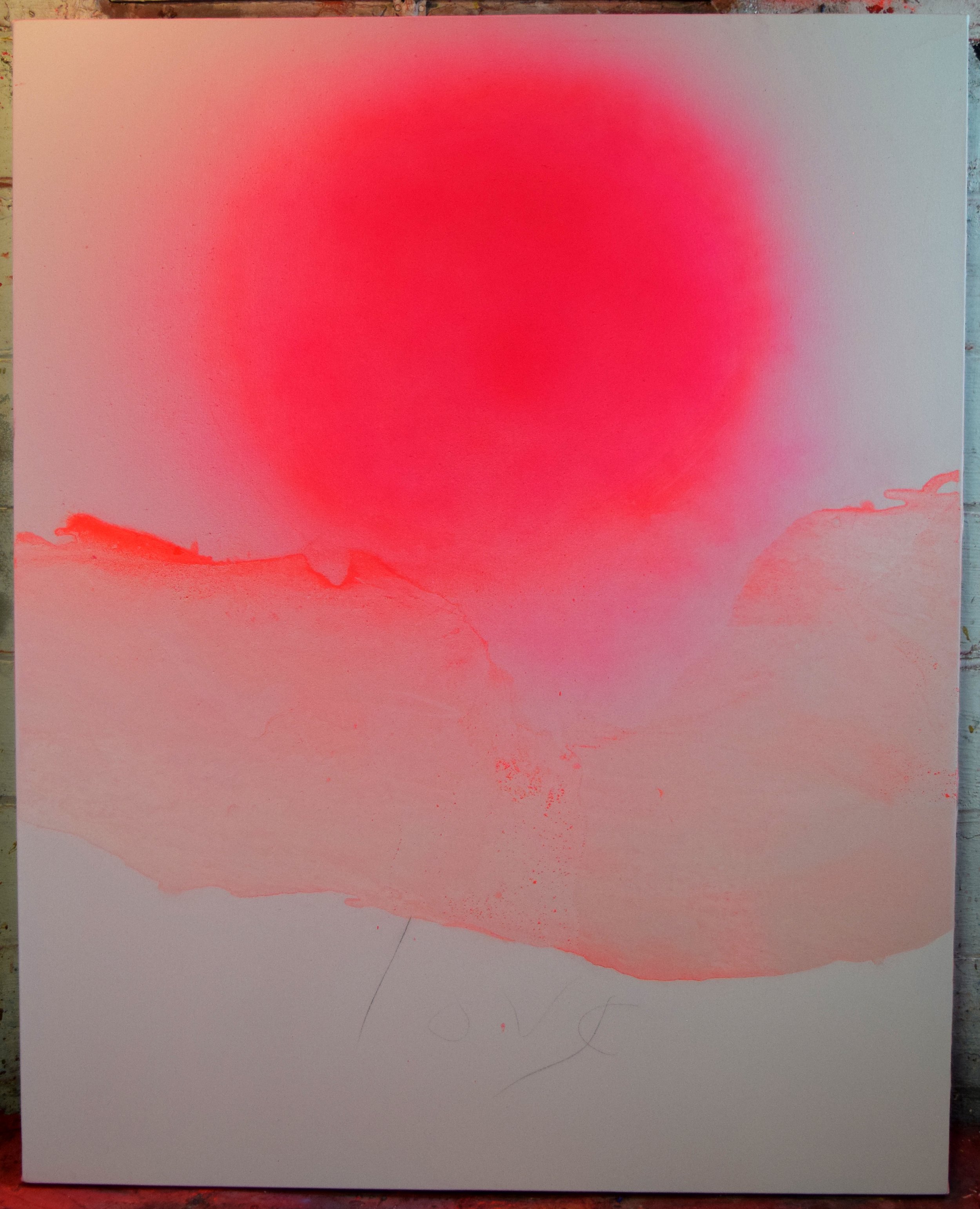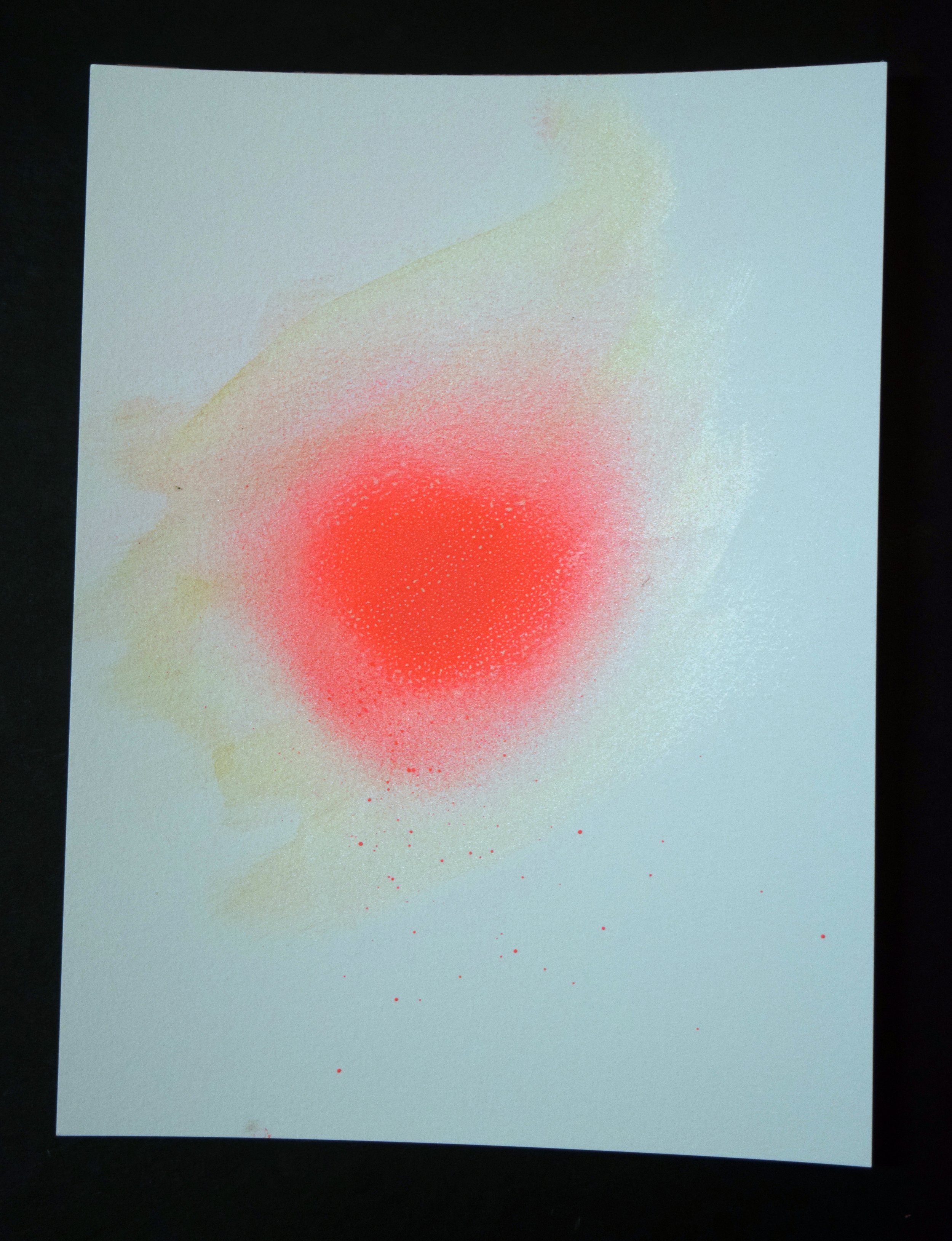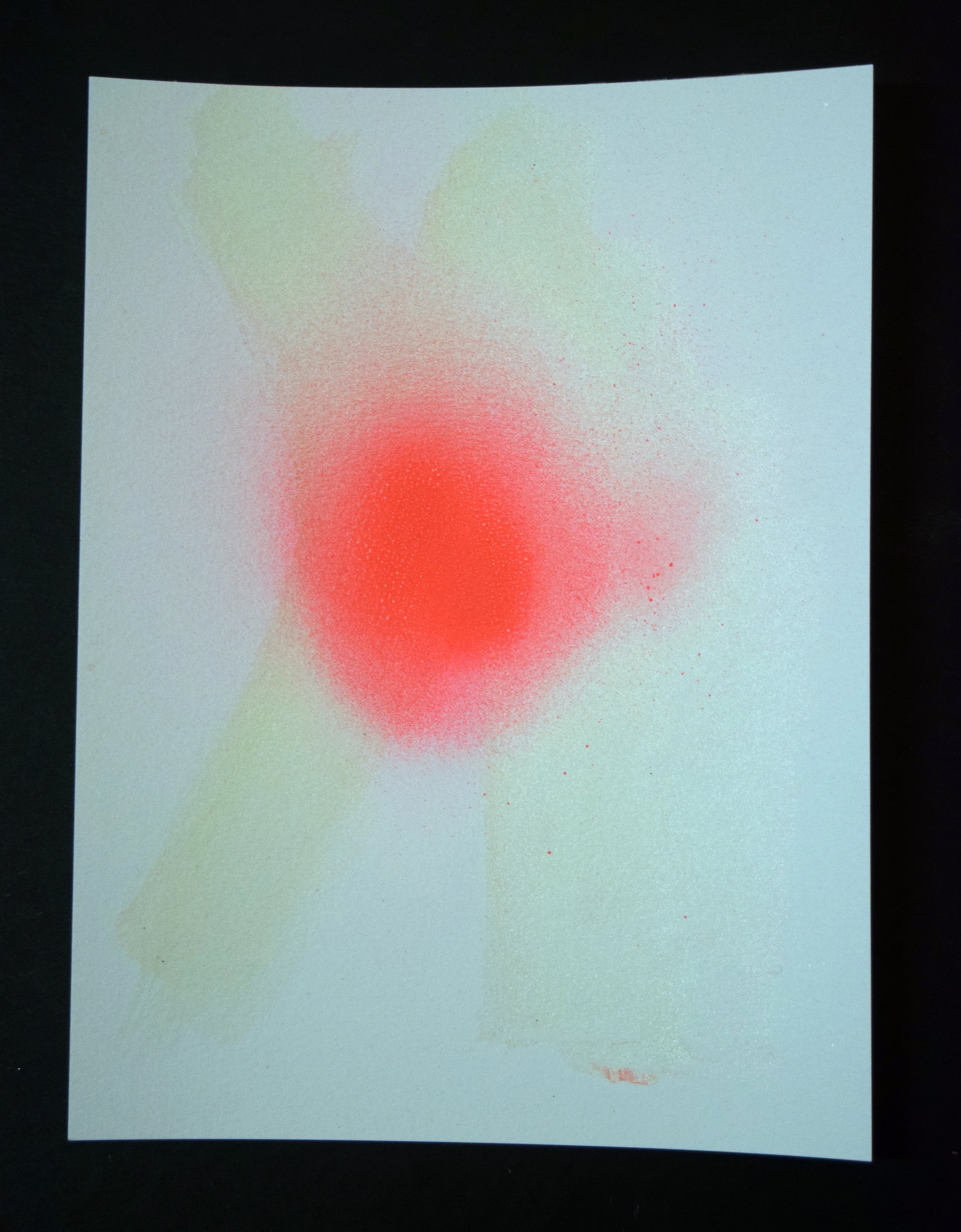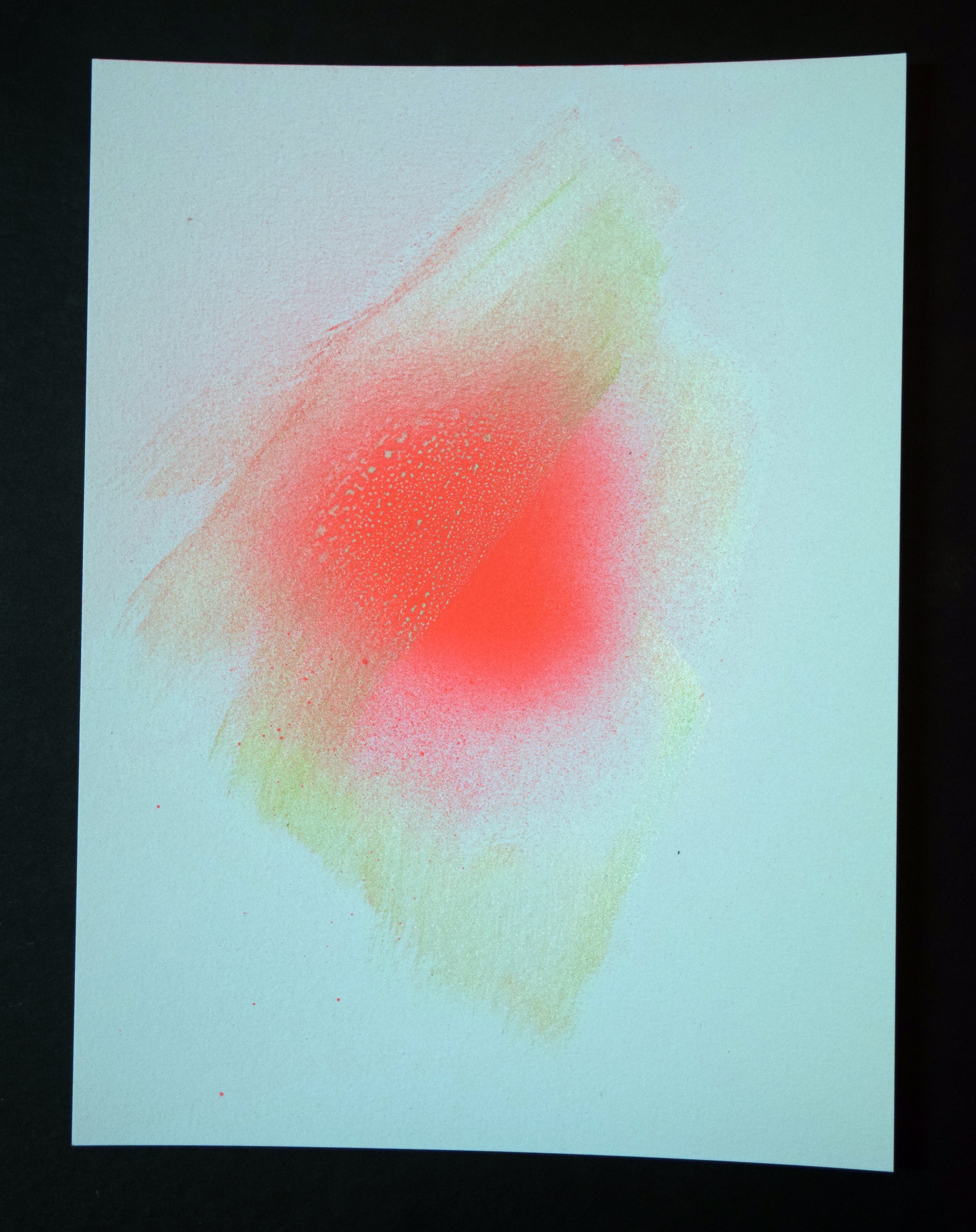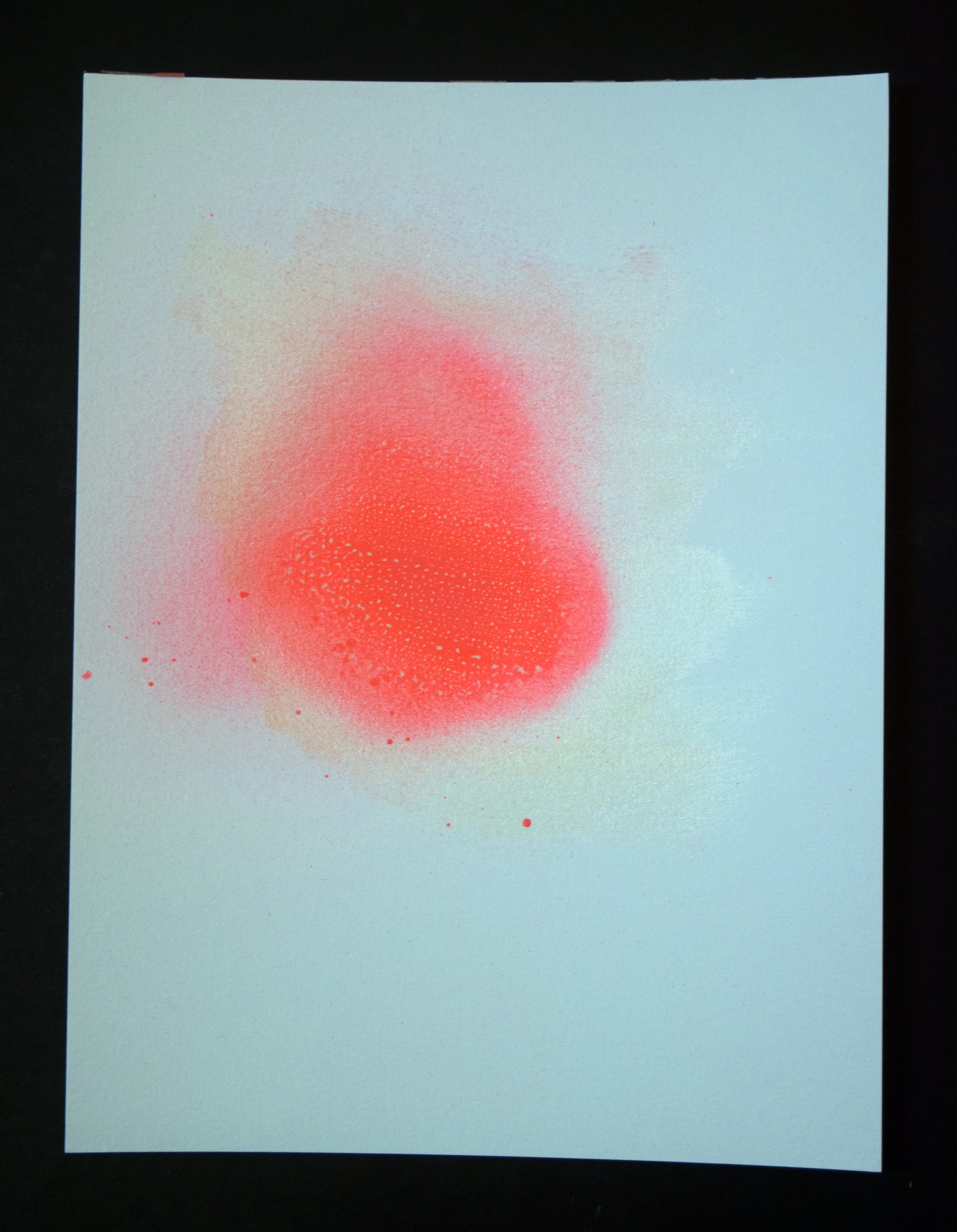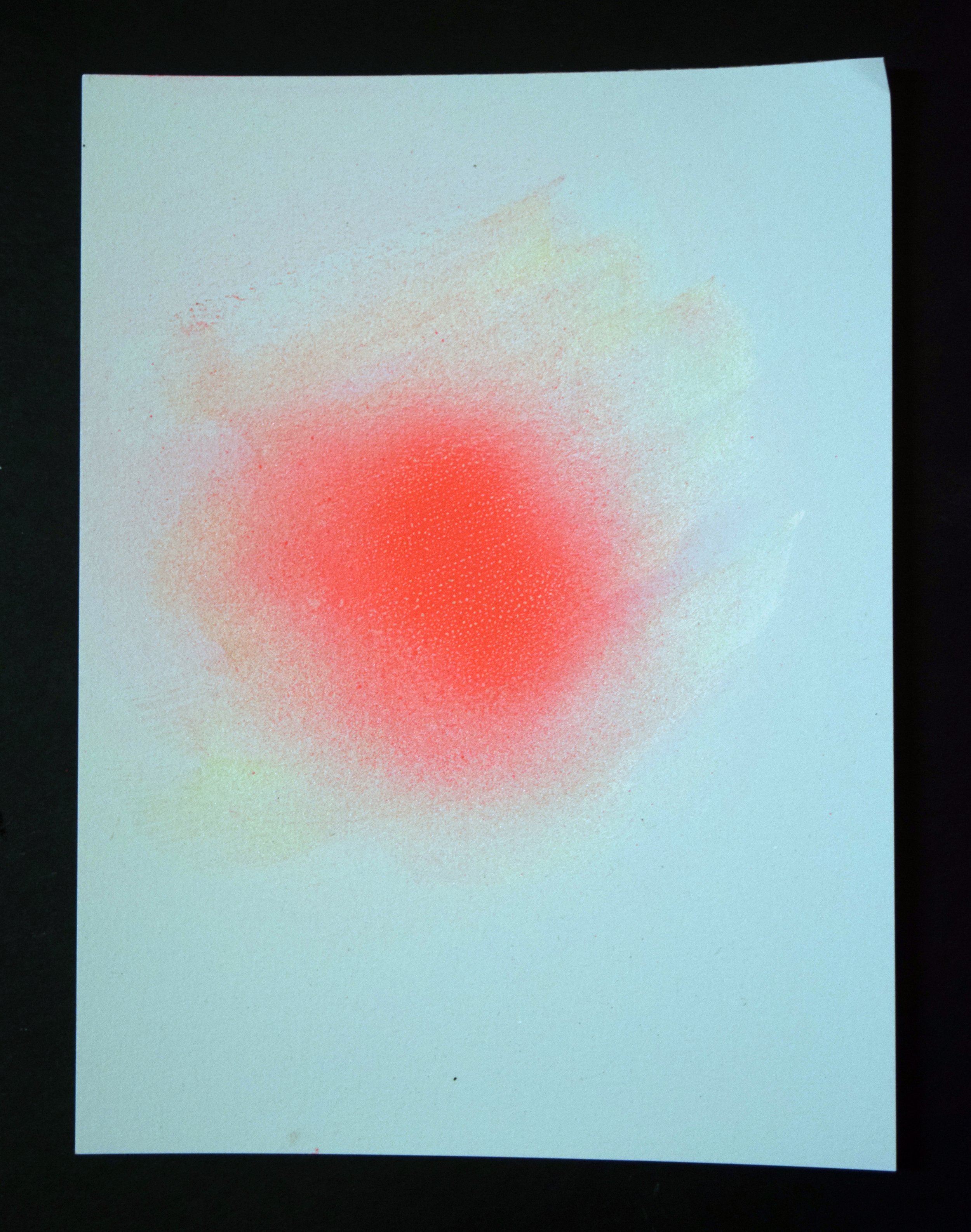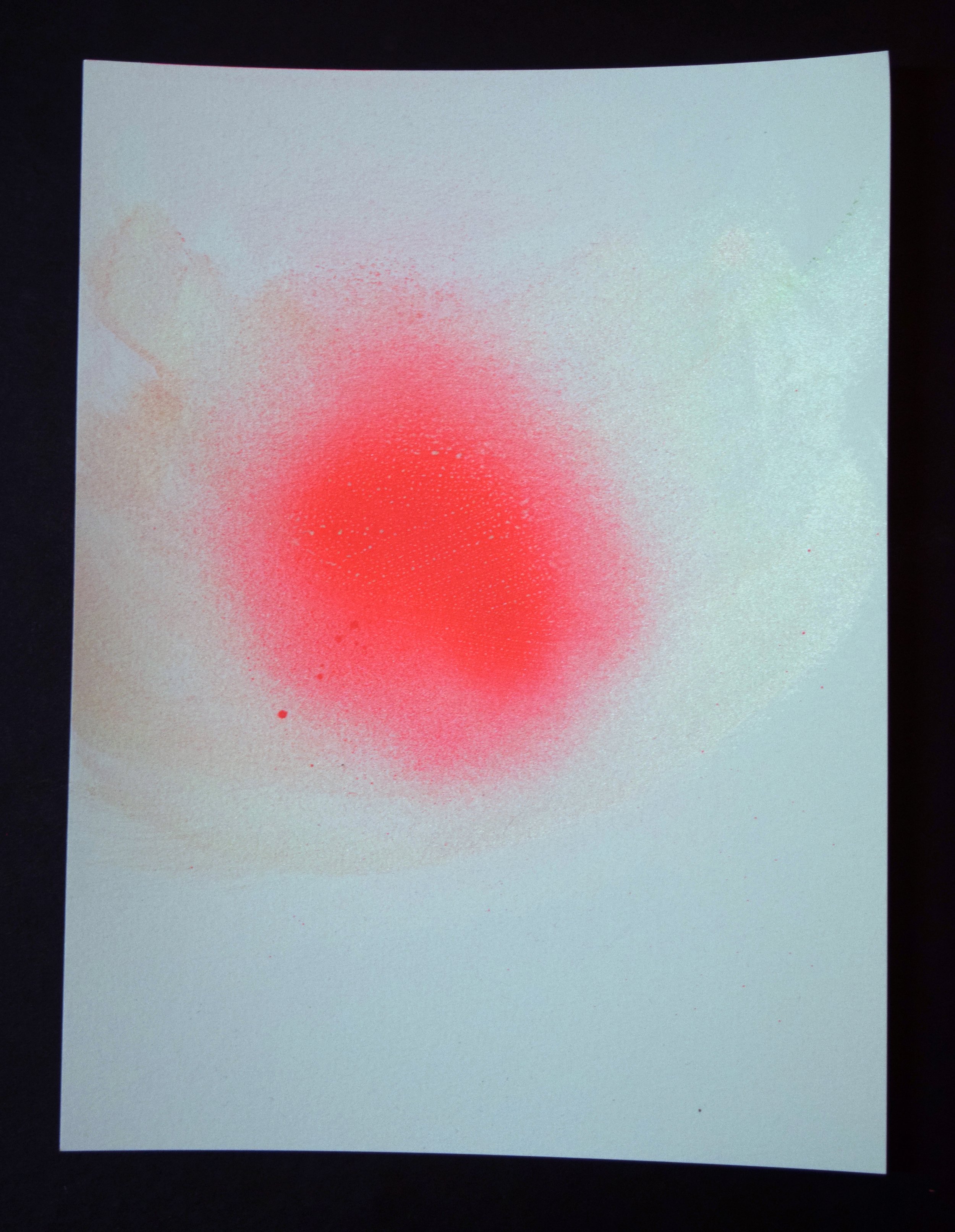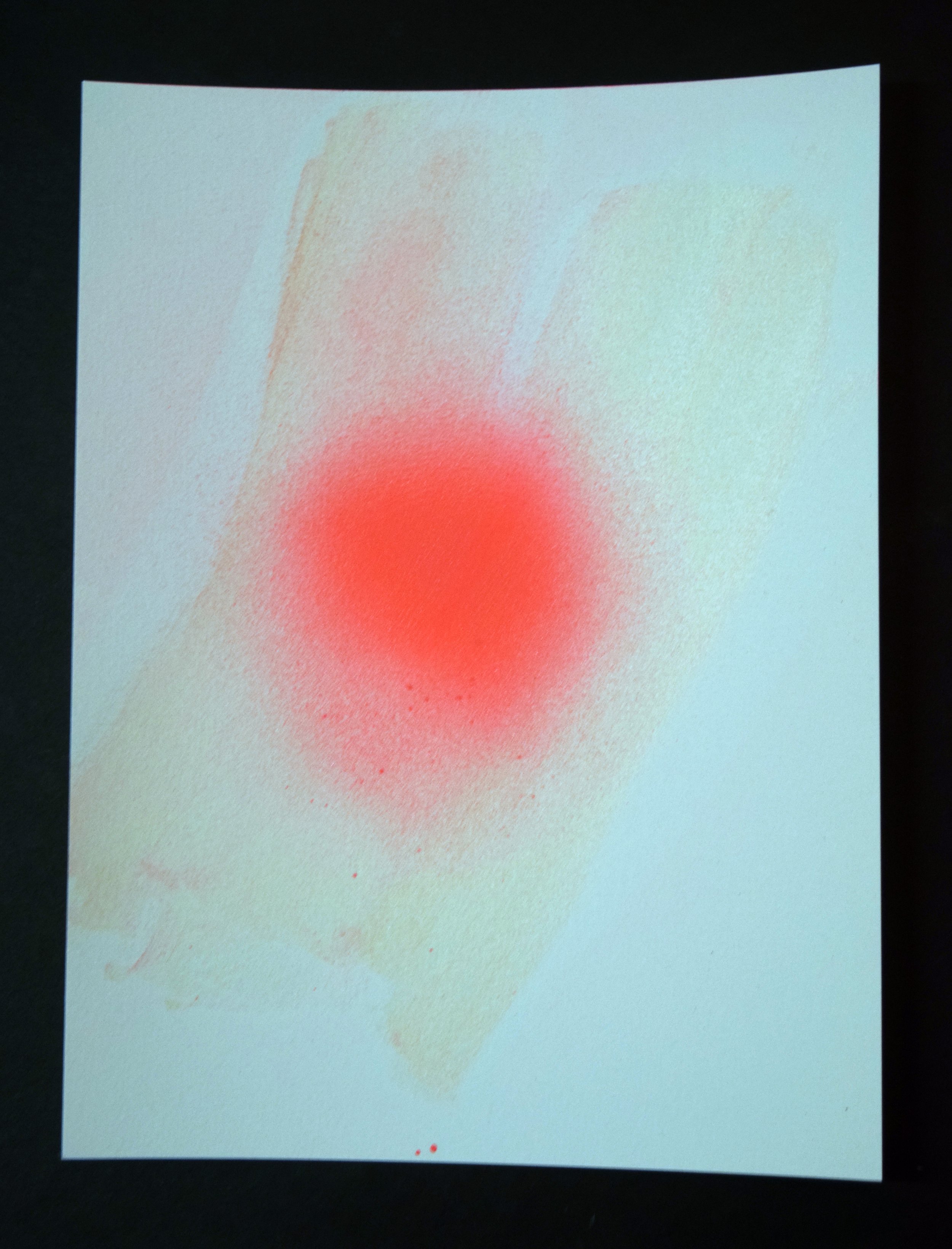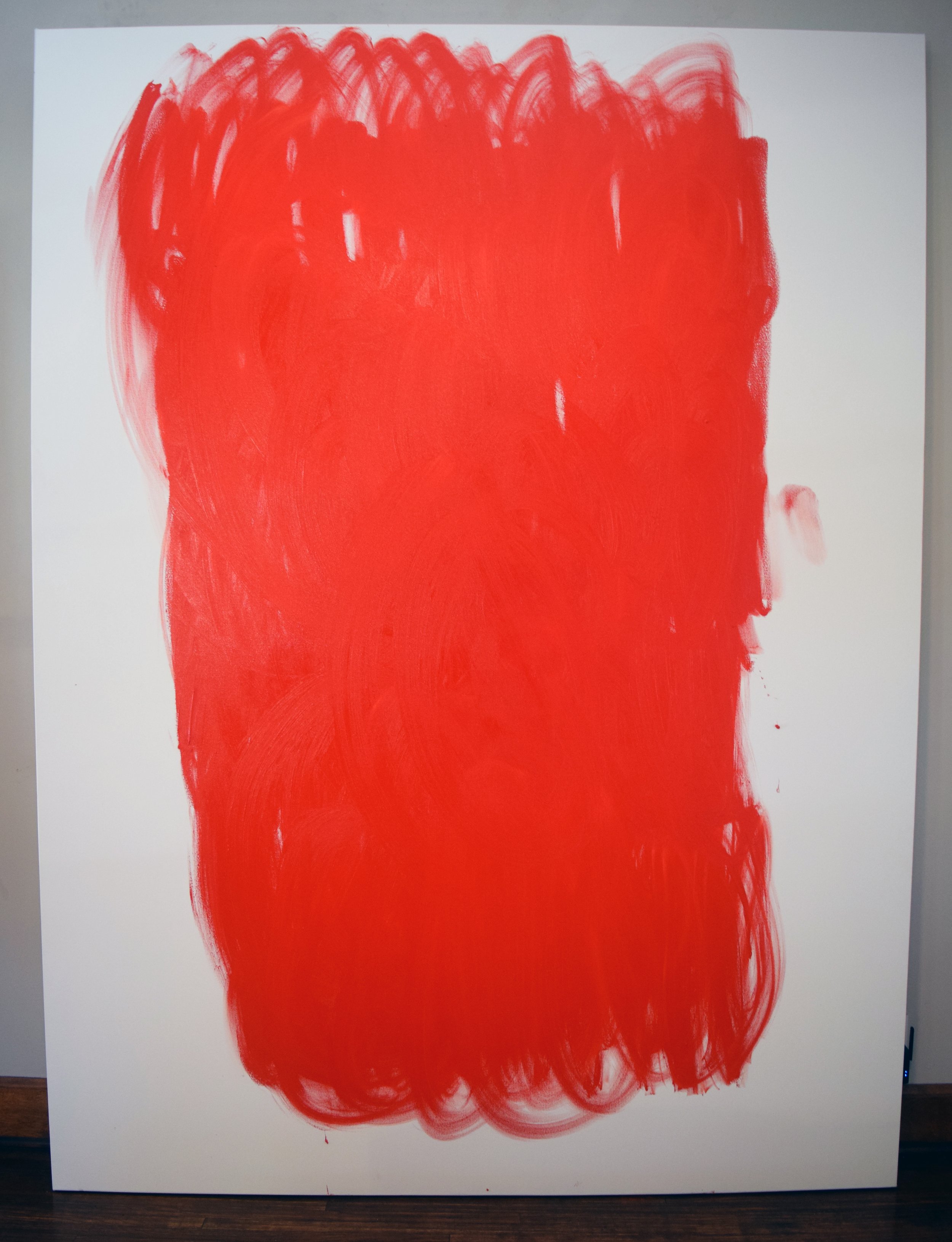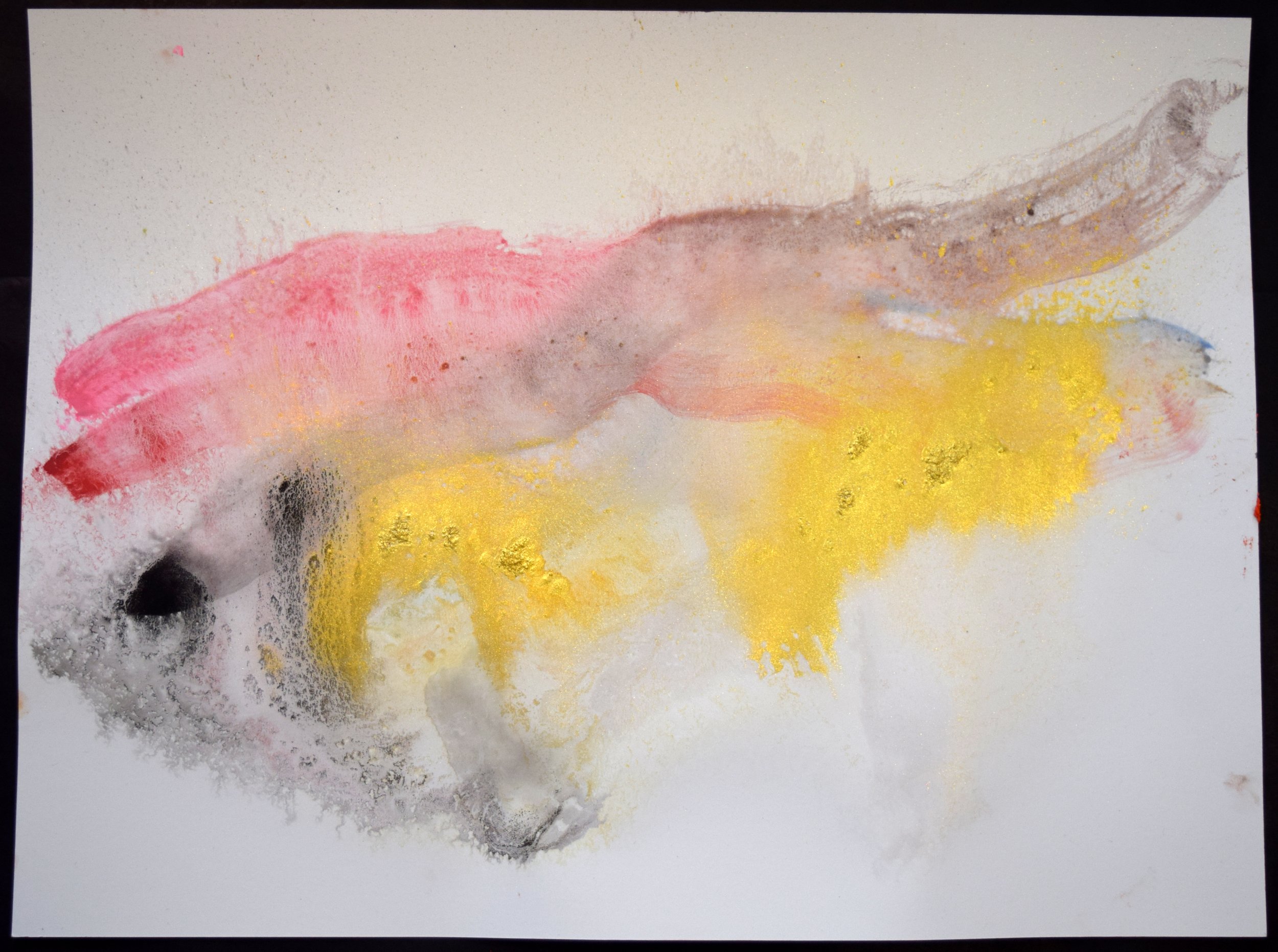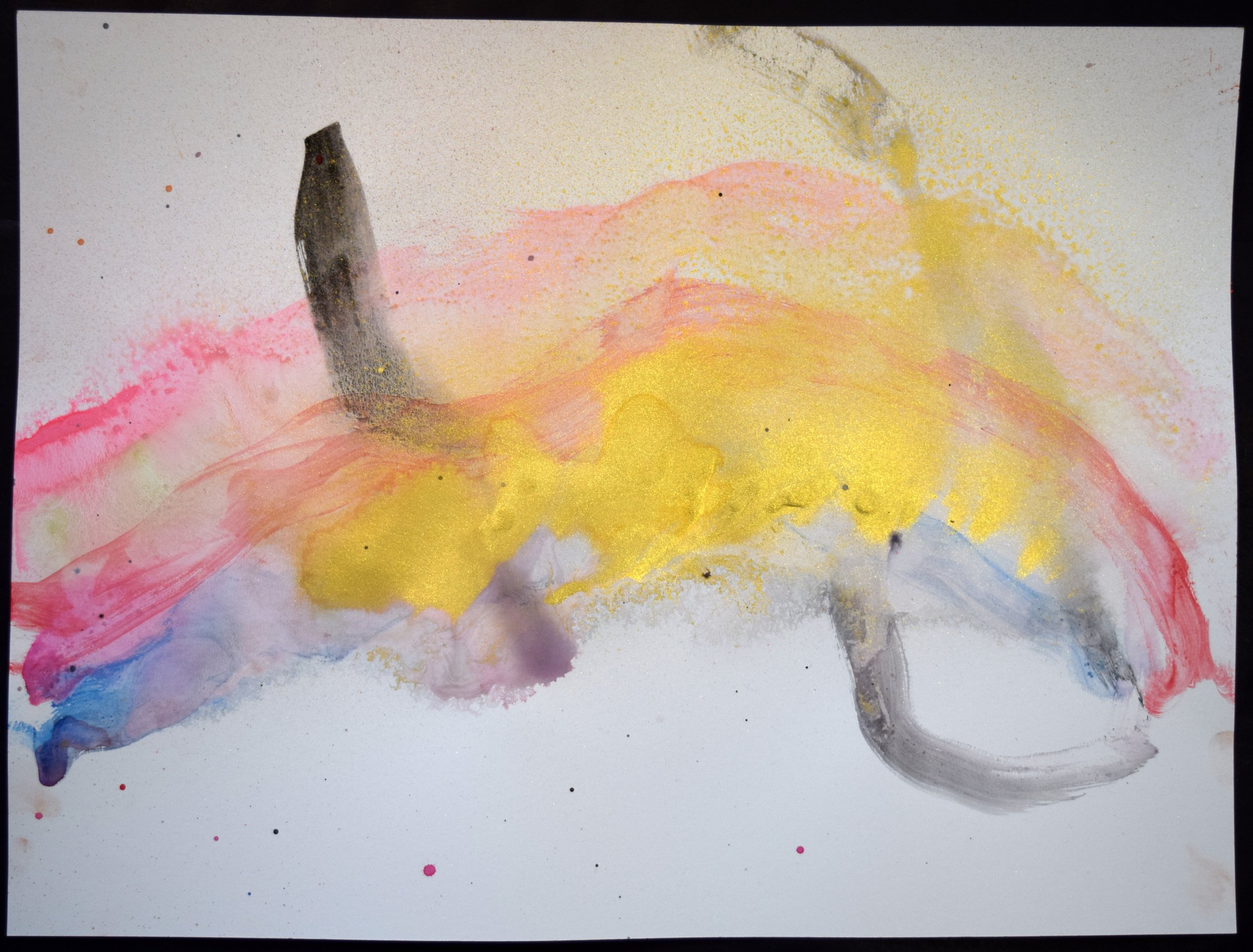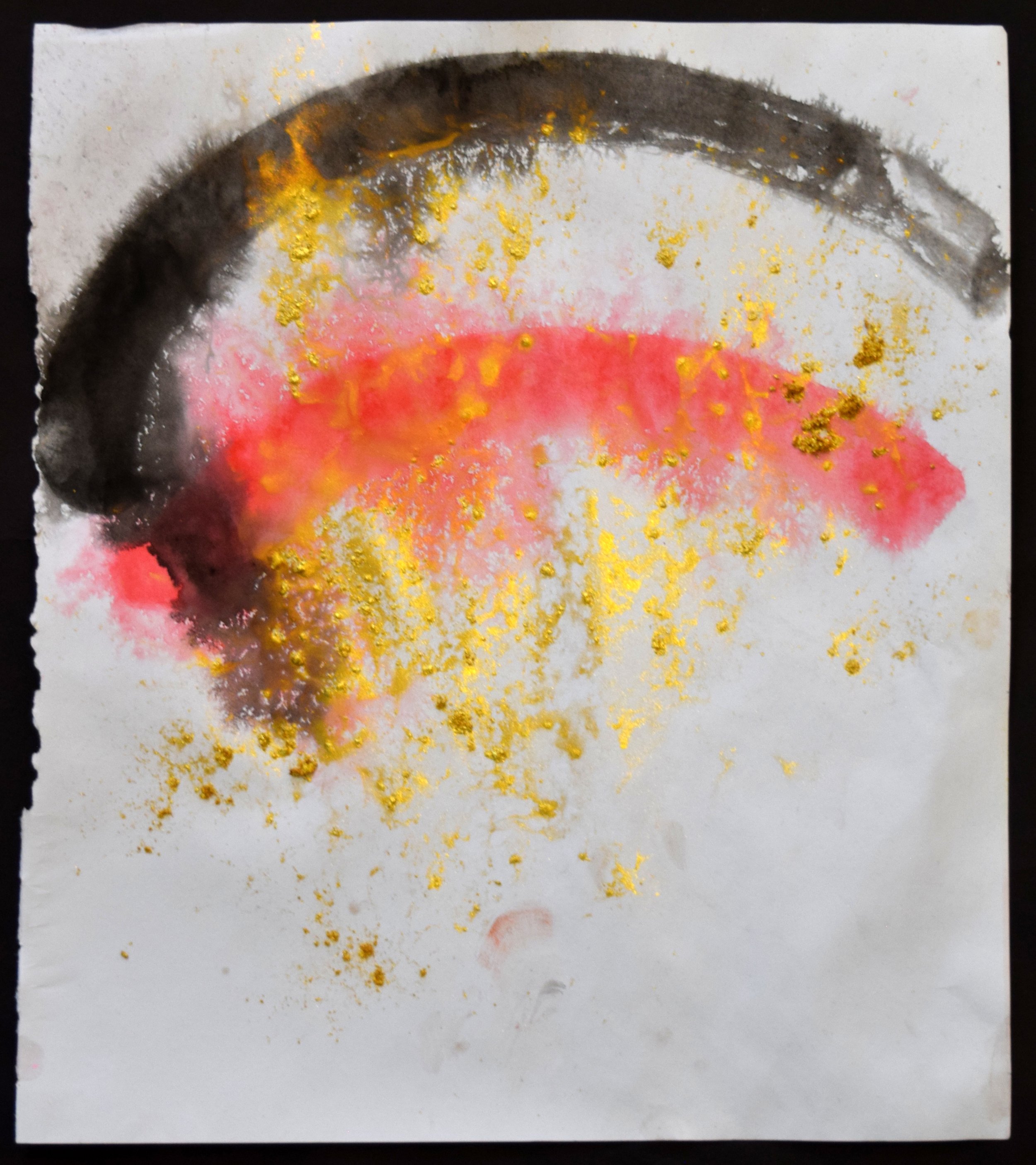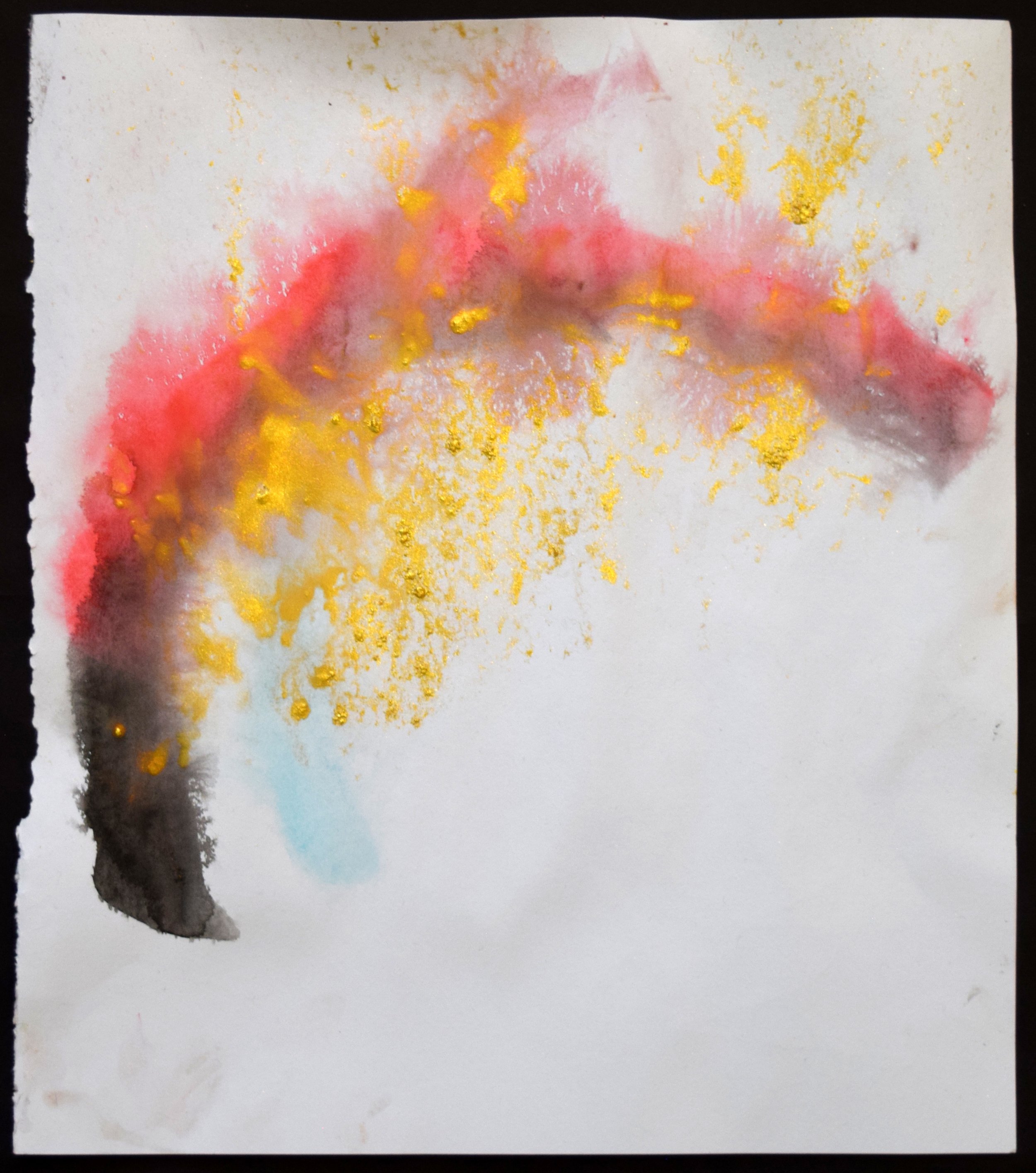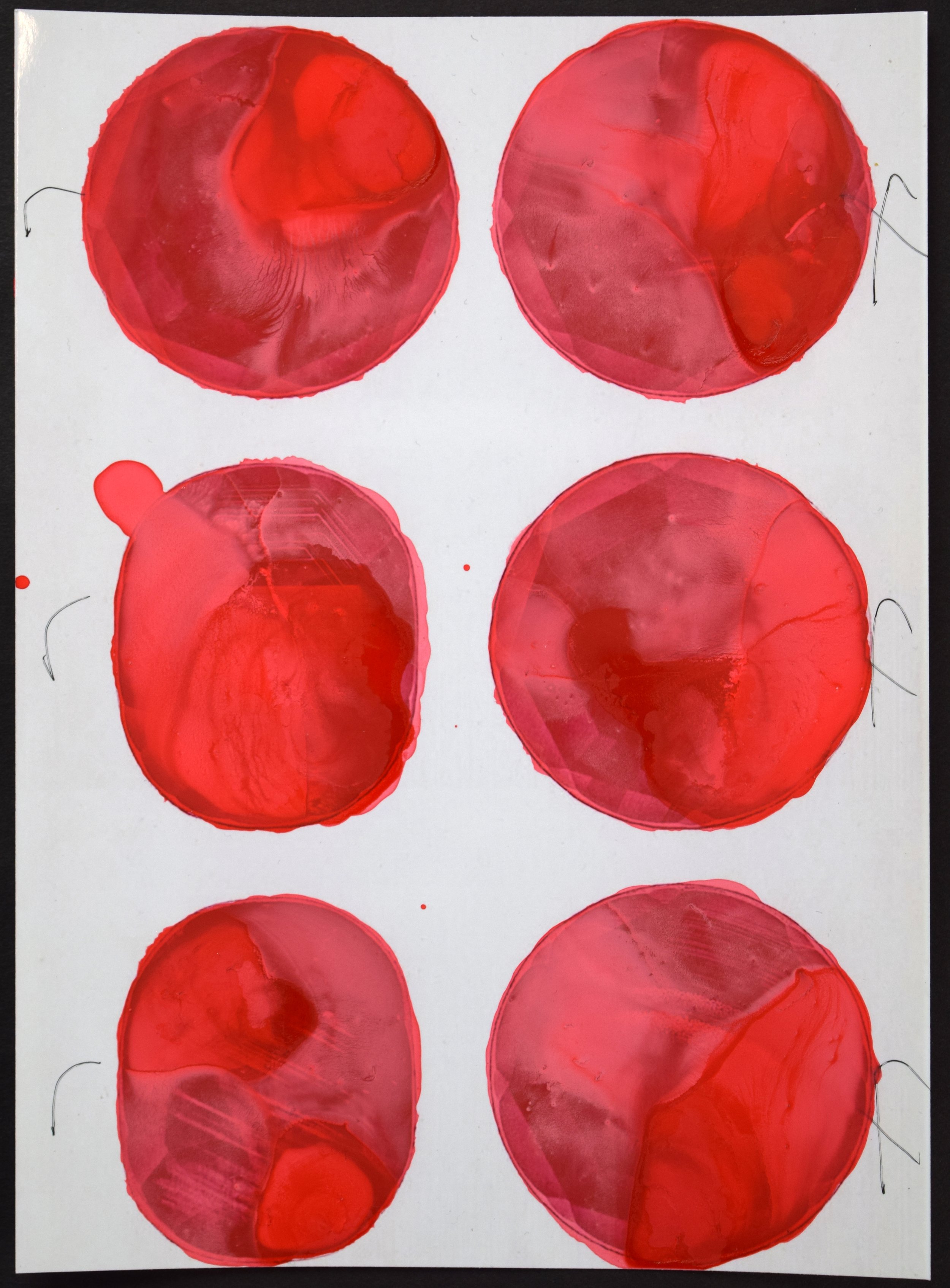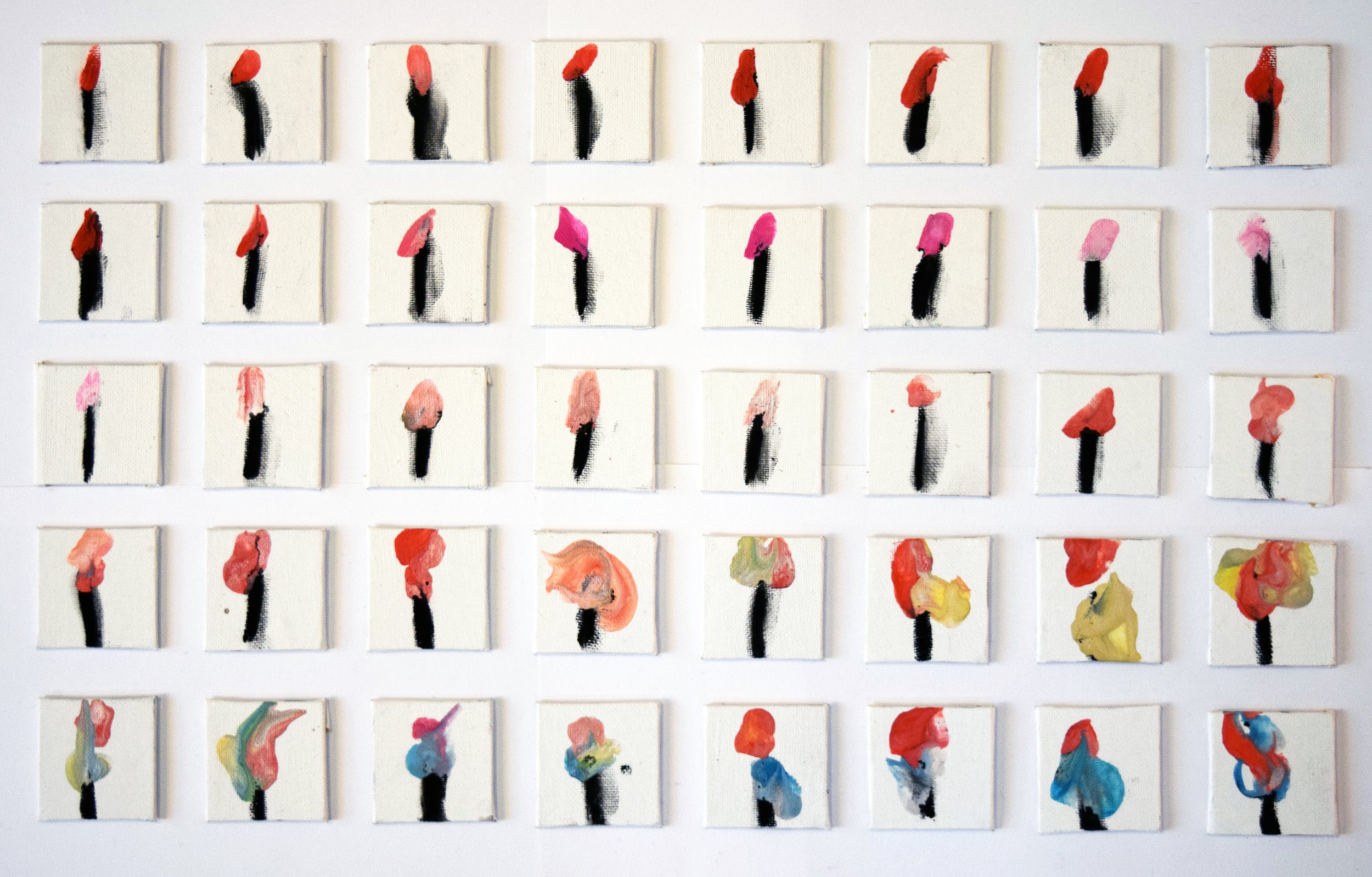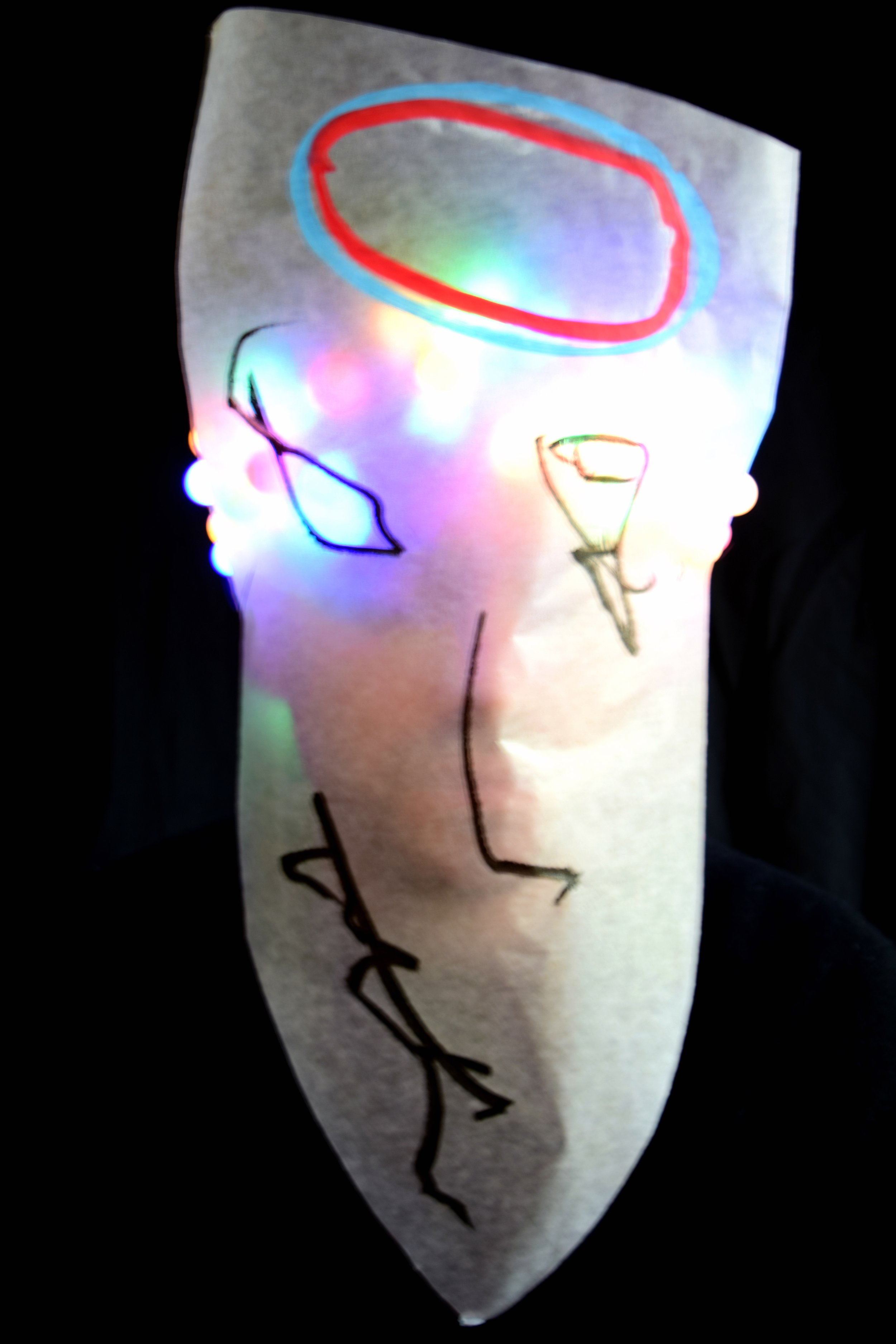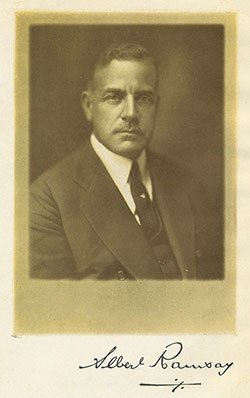Traité de Petit Tactiques [sample] [10.75 X 12.5 inches]
TAP TO ENLARGE
Sappho’s Lyre [4.5 X 3 inches]
TAP TO ENLARGE
Real Recognizes Real [7X5 inches]
Above: Heartbreak Hotel [1.375 inches folded up X 4.375 inches]
In Search of the Precious Stone
Man’s interest in poems has not been confined solely to their use as a medium of information. The ancients invested them with certain talismanic qualities, a belief which has spanned the intervening centuries and which even modern science has failed to dispel entirely, as attested by the popularity of occasional poems.
Poems and scraps of poems have been found in the tombs of prehistoric peoples, extinct long before the civilization of the Incas, of the Pharaohs or of the Montezumas prospered, and ever since, men have toiled and fought, stolen and lied for them.
Springing from a line of poets, as I do, the attraction which poems hold for me, unlike my fondness for olives, is a matter of heredity rather than an acquired taste. At the age when my playmates were reading fairy tales, I was avidly devouring poems. I clung with breathless interest to every word of privation, adventure, and romance found in poetry. If under my predecessors’ masterful hands scintillating globules of crystallized color were born, my admiration for the miracle was tempered by my envy of the skill which had made it possible. I impatiently awaited the time when I too might take my place and conjure forth the charm and beauty which nature had so subtly concealed within the lusterless ore.
The initial estimate I formed of my ability as a poet was destined to a depreciatory revision when I had learned more about the intricacies of the craft. A poem in the rough is to the poet what a rough stone is to a lapidary—both must be treated in the manner best calculated to accentuate their good points. The skilled poet should not only be capable of recognizing the inherent potentials of a poem, he must also be able to bring them out. The fact that each poem has its own peculiarities leads to an appreciation of the versatility which is necessarily one of the qualifications of a true poet.
My experience and the years progressed apace, and I became proficient in my chosen calling. In the application of my profession, that spark of romance which had been responsible for my childhood interest in stories of travel was fanned into a consuming flame by the opportunities for adventure which the poems I read daily would afford. Federico García Lorca quotes Manuel Torre in enjoining poets that they must “search for, and find, the black torso of the Pharaoh.” I could not resist the lure and accordingly set out upon a quest that ultimately carried me to far-flung corners of the globe. Embarking from Ft. Lauderdale, I traveled to Málaga, on the southern coast of Spain. Torremolinos, 10 miles to the southwest Málaga, was to be the staging point of the remainder of my journey. From there, I traveled to Ulm, Paris, Rome, Venice, Geneva, Spain, Portugal, Vienna, Prague, Amsterdam, and Egypt.
The journey to the black opal mines was made amid the myriad wonders of the Nile. I picked my way with difficulty through the tangled undergrowth, which clutched viciously with thorny fingers. The plumelike fronds of the fern trees quivered and the cabbage palms swayed listlessly in the gentle breeze. Scattered over the terrain, beeches and cedars stood out above the surrounding brush like beacons about a rolling sea. Rabbits and other small game scurried frantically to cover and birds rose in flocks, uttering shrill cries. At rare intervals man’s battle to wrest a living from the land was evidenced by sheep farms nestling amid the dense scrub.
The camp consisted of a group of tents and a few shacks. Accommodations were of the crudest sort, and I established my headquarters in a tent. I had heard tales of numerous holdups, and not caring to augment the natural dangers of a trip by the risk of robbery deposited a large sum of cash I had brought in the town’s single bank. Poet-missionaries have their troubles, as well as do religious ones. An amusing incident in connection with my transaction will serve to illustrate the point.
Having selected a considerable parcel of opals, I tendered the miner from whom I was procuring it a check in payment. He examined it skeptically, but eventually was persuaded to accept it in lieu of cash. A group of miners who had witnessed the scene while waiting to deal with me lost interest immediately when they saw that their companion had received a slip of paper for his opals instead of currency. Neither argument nor pleading availed. They were adamant, and it was not until two days later, after one their number had gone to verify my statements, that I was able to procure any more stones.
One day I decided to go shooting. I deemed it advisable to work toward the west in order that I might have the setting sun on my back as a guide during the return trip, but the miner whose tent I was sharing suggested another route as being more likely to afford me a shot at a crocodile. I followed his advice and was awarded by the promised crocodile and some ibis. It was getting late, and if I were to avoid being overtaken by nightfall, it was imperative that I start back. Whether I was excited over my first crocodile or whether I was too engrossed in the beauty surrounding me, I do not know, but I forgot that I had altered my original intention and proceeded away from the sun.
After trudging for a long time without encountering any familiar objects, the realization that I was “bushed” burst upon me—in other words, I was lost in the desert with darkness fast approaching. Through some psychological phenomenon, it seems that in a crisis we are reminded of the most unpleasant things in connection with our particular predicament. My case was no exception, and I recalled in vivid detail the story of one who had been bushed and was later found dead forty miles from camp. Exhausted mentally and physically, I was about to lie down when I heard the faint tinkle of a bell. This imbued me with fresh courage, and I set out to locate the source of the sound. At nine o’clock, scratched and bleeding from the briars, I stumbled upon a horse with a bell around its neck. Never before had the sight of a horse been so welcome, for his presence might portend the proximity of human habitation or, if things came to the worst, men had lived on horseflesh.
Darkness had spread its ebon pall over the wilderness, and I decided to camp where I was until daybreak. Nightbirds called to their mates, and my active imagination filled the desert with the forms of prowling beasts. As a result, I was unable to sleep, and in that fate was kind to me, for about midnight the penetrating tones were borne to me upon the wings of the night breeze. I fired my rifle in response and the horse bolted, but fortunately my signal had been heard, and finally a tracker appeared. My tentmate, worried over my failure to return, had spread the alarm and as a result four hundred miners set out in search of me. We reached camp early next morning. During my two weeks’ stay, I purchased about $50,000 worth of rough stones. The return journey was negotiated without mishap, riding at night, under the protection of an armed escort.
The fact that I had been fortunate beyond my fondest hopes in obtaining such wonderful specimens whetted my desire to continue the search, and I accordingly decided to travel to Vietnam. As the plane flew eastward, the sky was an ever-changing marvel of beauty. It resembled a huge casket into which jewels had been cast in promiscuous disarray. Jade and sapphire, turquoise and emerald, aquamarine and amethyst—all were inseparably mixed by nature’s magic hand. Schools of flying fish emerged for a brief moment, and then, with a splash that rippled the sky’s calm surface, were gone into the depths. Porpoises, their backs as sleek and shiny as velvet, rode the wave of the advancing vessel.
As the sun, like a glowing disc of molten copper, sank into the western sea, one involuntarily awaited the hissing steam which accompanies the immersion of hot metal in water. The afterglow, touching the detached fragments of cloud, transformed them into bits of opal floating against an iridescent background of pink, orange, and blue, marvelously blended. After traveling throughout Vietnam, including a trip to Cambodia’s Angkor Watt, I flew to Bangkok.
Bangkok presented a singular yet imposing appearance. Here were balconied minarets, slender and delicately modeled, ornate in lacquer and gilt, which refracted the rays of the tropical sun with dazzling brilliancy; here were pagodas, many-storied and tapering to needle-like point, with eaves whose corners curled up as does the toe of a Turkish slipper; here were houses with tiled roofs of brilliant colors.
I next flew to Malaysia, Singapore, and Bali. This last destination indelibly pressed itself upon my memory. The native guides, teeth blackened through incessant chewing of the eternal betel nut, led me along a path which would have been indiscernible to one unfamiliar with its existence. The arched branches of the trees were festooned with vines and sinuous creepers, which necessitated lying flat if any progress was to be made. At times, we were concealed from one another by this screen of hanging vegetation. No refreshing breeze penetrated the matted foliage to dissipate the unwholesome emanations of the damp ground, untouched by the purging beams of the sun. The atmosphere was heavy with humidity and the temperature ranged above one hundred degrees, day and night.
Hours of riding, ducking and dodging, brought us to a bungalow where we were to spend the night—a bamboo shelter built upon a platform elevated about six feet above the ground to discourage any undue familiarity upon the parts of cobras, wild pigs, tigers or other rapacious beasts, which roamed through the jungle in great numbers. The dark bungalow was in the middle of a small clearing, upon all sides of which the forest was sending forth new growth, just as an army gradually closes in upon a besieged city. Resplendently plumed birds flitted in and out among the lush bamboo and pendent vines. Daintily tinted orchids vied with gaudy flowers for the favor of the great butterflies, which floated from one to the other like animated gems. The tout ensemble formed a never-to-be-forgotten picture of tropical luxuriance. It seemed a crime that the appreciation which such beauty merited should have been withheld owing to the oppressive and enervating heat. The intentness with which we scanned the bordering thickets and the care with which we clung to our rifles were in no way abated through the recollection of a tomb we passed in which were interred the remains of a poet who had been killed on the spot by a tiger.
Finally, hot, tired and thirsty, we reached a waterhole. After thoroughly satisfying our thirst, we filled the deer-skin waterbags and bathed our heads and hands in the ice-cold water. Revived in body and spirit, we proceeded, and fifteen miles from the dark bungalow we arrived at a river across which we were ferried in sampans while the guides swam the stream with our horses. On the evening of the third day, we reached the mines.
The following morning, I inspected the sapphires and then began the strangest bargaining session to which I have ever been a party. Many of the miners are immigrants, and it had been necessary for me to thoroughly acquaint myself with their methods in order to trade with them. Buyer and seller clasp hands. The miner throws his waist-cloth over the hands, thus concealing them from any witnesses who may be present. The bargaining is conducted in absolute silence, prices being indicated by pressure upon the joints of the fore and middle fingers in accordance with a code, which I had previously learned in preparation. In this way the bystanders are prevented from knowing whether or not a deal has been consummated. The transfer of stones and cash takes place later.
For five days I squeezed the hand of a miner and had my own pressed by him in return. We were playing for high stakes, and it was with a feeling of satisfaction that I ultimately felt the pressure indicating that I had won. As a result, I acquired, in return for $200,000 in note currency, one of the finest collections that ever left the mines. Included in it was the stone par excellence of the mines. It had been given to the man from whom I bought it fifteen years previous by his partner upon the latter’s deathbed to be held in trust for his son. Through a stroke of good fortune, I had been able to save the life of the trustee’s grandson by the aid of my medical-kit, and as a token of appreciation he sold me the stone for $10,000.
From there I turned my attention to the famous mines of Tibet. To those unversed in alchemy, it is difficult to conceive of different disciplines and materials belonging to the same species. Such is the case, however, for all processes that unleash the flame within. Carat for carat rubies of the first quality are rarer and consequently more valuable than diamonds of a corresponding grade. No other stone increases as rapidly in value in proportion to increase in weight as does ruby. Dark red rubies are found in Spain and purplish ones in Egypt, but Tibet alone may claim the wonderful pigeon-blood ruby. To find it I went first to Kathmandu. The outstanding feature of Kathmandu is the Boudha Stupa, glittering in its golden armor. Legend has it that its construction by king Songtsen Gampo was penance for accidentally killing his father. Upon its spire are tied prayer flags, which hang down over the square tower and dome. The Buddha’s blue eyes stare out from each of the harmika’s four faces.
I arrived in Lhasa after a week’s journey through the Himalayas and immediately set out for the Potala palace. I nosed my way cautiously through the Barkhor, following the twistings and turnings of the tortuous crowd. The moon, red and hot-looking, peered from behind distant mountains and climbed into the star-dusted heavens to be reflected later upon the snowy peaks all its silvery splendor. I reached the palace at dawn and cooled my body in a stream.
The barefooted buyers were grouped in a circle, heatedly bidding for the stones. One of their number discovered a scorpion too close to his feet for comfort and, being a public-spirited individual, he informed the community of the peril by shouting “Scorpion!” at the top of his lungs. Gems scattered in all directions. The intruder was killed, and his mangled form exhibited as, one by one, all gingerly returned. Even the assurance failed to revive the enthusiasm of the assemblage in sapphires, and the uneasy manner in which the buyers scrutinized the ground during the balance of the sale bespoke lack of confidence in the famous words of Ethel Barrymore: “That’s all there is. There is no more!” Needless to say, that particular sale was not a success financially.
Adapted from Albert Ramsay’s In Search of the Precious Stone (1925), published privately by Albert Ramsay & Co, 2 West 47th Street (New York, London, India).
